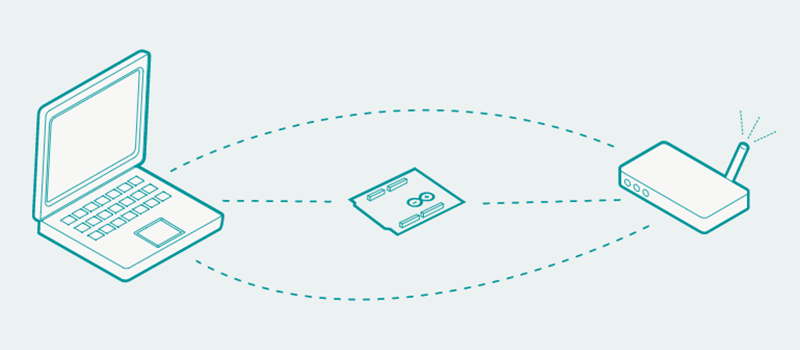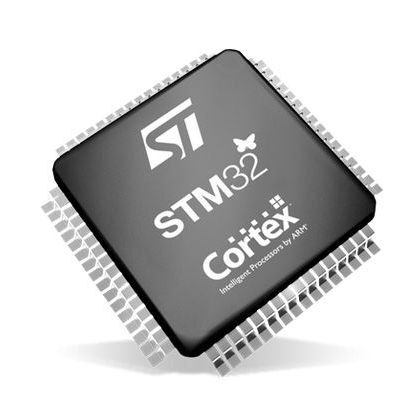Back in the olden days, when the Wire library still sucked, the Arduino was just a microcontroller. Now, we have single board computers and cheap microcontrollers with WiFi built in. As always, there’s a need to make programming and embedded development more accessible and more widely supported among the hundreds of devices available today.
At the Embedded Linux Conference this week, [Massimo Banzi] announced the beginning of what will be Arduino’s answer to the cloud, online IDEs, and a vast ecosystem of connected devices. It’s Arduino Create, an online IDE that allows anyone to develop embedded projects and manage them remotely.
As demonstrated in [Massimo]’s keynote, the core idea of Arduino Create is to put a connected device on the Internet and allow over-the-air updates and development. As this is Arduino, the volumes of libraries available for hundreds of different platforms are leveraged to make this possible. Right now, a wide variety of boards are supported, including the Raspberry Pi, BeagleBone, and several Intel IoT boards.
The focus of this development is platform-agnostic and focuses nearly entirely on ease of use and interoperability. This is a marked change from the Arduino of five years ago; there was a time when the Arduino was an ATmega328p, and that’s about it. A few years later, you could put Arduino sketches on an ATtiny85. A lot has changed since then. We got the Raspberry Pi, we got Intel stepping into the waters of IoT devices, we got a million boards based on smartphone SoCs, and Intel got out of the IoT market.
While others companies and organizations have already made inroads into an online IDE for Raspberry Pis and other single board computers, namely the Adafruit webIDE and Codebender, this is a welcome change that already has the support of the Arduino organization.
You can check out [Massimo]’s keynote below.
















Serious overengineering. :-/
You nailed it for me. I was going to comment What? Why?
This could be interesting. I do wonder if I will be able to figure it out, being as it is so simple ;)
It is so simple that a six year old can figure it out. Unfortunately, it has been many years since I was a six year old.
Pay and benefits…like a six-year old.
Wire library still sucks, and Arduino “IDE” is still not better than Notepad. Buying Chinese knock off, code using a decent editor like Atom+platform IO, use AVR-GCC if you are still stuck into limited Atmel products, is a way more rewarding path than this lame Atduino
My vote is also for platformio, but it is a very flexible platform which can be used with any decent IDE. I tend to use Qt Creator. Platformio also supports the “mbed” framework without all the clould/mist stuff. And with mbed a shitload of ARM (cortex-m3 and other) boards and uC’s from different manufacturers.
I find it hard to believe some people still buy USD25 “arduino” boards with a simple USD2.5 uC and a few connectors with an absolutely horrible pinout.
The internet of pwned arduinos.
the s in arduino is for security
now excuse me as I check my botnet of avrs
+1, I like this idea
Yeah, I’ve got an armada of art installations acting as a botnet out there somewhere.
I hate cloud. I love offline
You have my vote :)
Thanks!
Check out platformio.
I hope it’s better than mbed’s online IDE. Yuck
platformio takes mbed ofline and with scons / python it interfaces with the commandline and you can use any offline IDE you like.
not sure I can see any point to this, can somebody please explain this? Can’t I already communicate with my Raspberry Pi over the internet?
SSH is too good, arduino wants to be the man in the middle.
Is it weird that I’m more interested in the CLI tools than in the cloud thing?
No it’s not weird. Same here.
CLI gives you power and productivity, flexibility and control.
In the clouds / mist youre lulled into sleep by big companies which steal your IP before you are ready to release it as a proper Open Source project :)
Seriously who cares? If someone wants to develop on a Linux platform, please learn how to use it properly.
Nothing that these cloud tools do can’t be done with SSH and maybe some X11 tunneling to run a GUI app on the remote machine remotely
” we got Intel stepping into the waters of IoT devices,…” and then stepping back out haha
No! See above.
Cant you do that on github already?
The first time I connected a BeagleBone Black to my pc via a single USB cable (no power cord!) I could type an URL in a web browser and write a progrom in “node.js” in the web browser directly on the BeagleBone.
That’s HTTP over USB. and it “Just works” on my linux box. For another OS they had a multi page manual for the same.
Then I found an power supply & ethernet cable and configured SSH for some more serious development.
A few days ago I stumbled into a nice recent (2018-02) overview of small SBC’s:
http://linuxgizmos.com/ringing-in-2018-with-103-hacker-friendly-sbcs/
http://linuxgizmos.com/january-2018-catalog-of-hacker-friendly-sbcs/
IF you want to make an arduino from your Raspberry, You go BareMetal C, if you want to use Linux, you use… C, of course. But gcc C, not ‘Wiring’ ‘C’
C is fastest and good performance for embedded system.